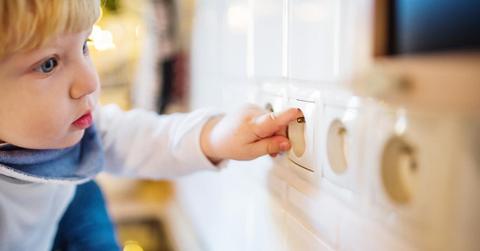
Second-born kids are more likely to be troublemakers according to study
By Mark PygasSept. 11 2024, Updated 12:59 p.m. ET
According to a study by the Journal of Human Resources, while first-born children may be smarter than their siblings, there might be a good reason that middle children were found to be least likely to be their parent's favorite child in a poll by British website Mum's Net.
A study from 2017 claims that second-born children are more likely to misbehave. The report, from Joseph Doyle, an economist at the Massachusetts Institute of Technology, might suggest that the "curse of the second-born child" is true after all.
Doyle and his colleagues found that second-borns, and in particular second-born boys, are more likely to be rebellious than the rest of their siblings. Their data, collected from thousands of sets of brothers in both the U.S. and Europe, showed that second-born children are 25 to 40% more likely to get in trouble at school and even with the law.
NPR believes that this could be due to the fact that parenting styles can change according to birth order. Social Science Correspondent Shankar Vedantam explained:
"A number of studies have looked into this. And they've found that firstborns often do better than secondborns on many fronts, everything from educational attainment to test scores, IQ, wages, even labor market outcomes."
"One possible explanation has to do with the effect of parental time and investment," Vedantam continues later in the conversation. "As many other earlier studies have noted, firstborn kids get the undivided attention of their parents, whereas kids born later are often competing for parental time and resources. Another factor that might be different is the peer group for first- and second-born kids is different. Older and younger siblings come from the same family, but they have different peer groups early in life."
Doyle also explained his findings to NPR, and the reason he thinks that second children are more likely to be troublemakers.
"The firstborn has role models who are adults. And the second, later-born children have role models who are slightly irrational 2-year-olds — you know, their older siblings. Both the parental investments are different, and the sibling influences probably contribute to these differences we see in the labor market and what we find in delinquency. It's just very difficult to separate those two things because they happen at the same time."
This article was originally published on July 5, 2020. It has since been updated.
